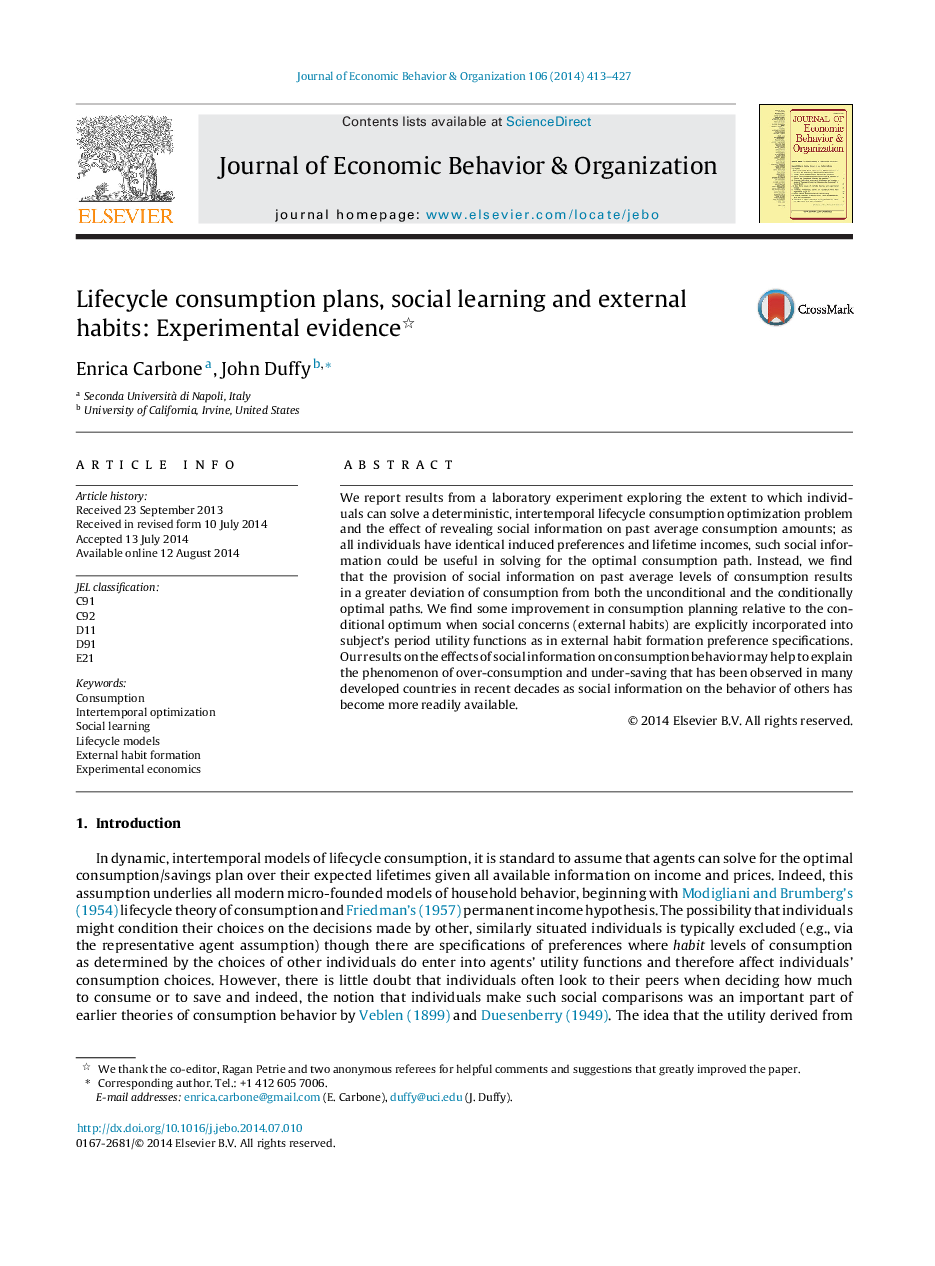| Article ID | Journal | Published Year | Pages | File Type |
|---|---|---|---|---|
| 7243512 | Journal of Economic Behavior & Organization | 2014 | 15 Pages |
Abstract
We report results from a laboratory experiment exploring the extent to which individuals can solve a deterministic, intertemporal lifecycle consumption optimization problem and the effect of revealing social information on past average consumption amounts; as all individuals have identical induced preferences and lifetime incomes, such social information could be useful in solving for the optimal consumption path. Instead, we find that the provision of social information on past average levels of consumption results in a greater deviation of consumption from both the unconditional and the conditionally optimal paths. We find some improvement in consumption planning relative to the conditional optimum when social concerns (external habits) are explicitly incorporated into subject's period utility functions as in external habit formation preference specifications. Our results on the effects of social information on consumption behavior may help to explain the phenomenon of over-consumption and under-saving that has been observed in many developed countries in recent decades as social information on the behavior of others has become more readily available.
Related Topics
Social Sciences and Humanities
Economics, Econometrics and Finance
Economics and Econometrics
Authors
Enrica Carbone, John Duffy,
